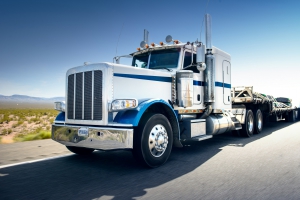 While the Federal Motor Carrier Safety Administration’s (FMCSA) electronic logging device (ELD) mandate has been in effect since December 2017, not everyone is compliant yet. Drivers operating a vehicle equipped with an automatic onboard recording device (AOBRD) have until December 2019 to implement an approved ELD. Many other drivers fall under exemptions as well; however, many of those exemptions are poised to or already have expired.
While the Federal Motor Carrier Safety Administration’s (FMCSA) electronic logging device (ELD) mandate has been in effect since December 2017, not everyone is compliant yet. Drivers operating a vehicle equipped with an automatic onboard recording device (AOBRD) have until December 2019 to implement an approved ELD. Many other drivers fall under exemptions as well; however, many of those exemptions are poised to or already have expired.
Even so, many trucking companies and organizations sought additional exemptions or delays for full compliance for a plethora of reasons. FMCSA denied the following requests due to the petitioners failing to prove how they would meet the same level of safety provided by adhering to the ELD mandate as well as existing hours of service (HOS) regulations.
- Power and Construction Contractors Association (PCCA). PCCA requested an exemption because construction employees rarely operate commercial vehicles on public roads. Most of their movements occur on job sites, meaning their drivers are traveling a very short distance.
- Western Equipment Dealers Association (WEDA). WEDA sought an exemption because they deal in agricultural equipment and ELD requirements put an undue burden on dealers without providing a quantifiable safety benefit.
- Association of Energy Service Companies (AESC). AESC requested an exemption for well service rigs to use paper records of duty status (RODS) because the majority of their movements fall under the short haul exemption already. Moreover, very little of their driving occurs on public roads.
- Cudd Energy Services, Inc. (CES). CES asked for an exemption because most of their trucks aren’t driven on a regular basis. Drivers require extra training to operate the specially built commercial vehicle for oilfield operations. They requested an exemption for drivers to use paper logs instead of an ELD for these reasons.
- SikhsPAC and North American Punjabi Trucker Association. Sikhs PAC and NAPTA requested a one-year delay for their members—fresh produce shippers and small truck businesses. They argued the existing ruling puts undue stress on these companies and the one-year delay would give them time to develop solutions to address this issue.
- Owner-Operator Independent Drivers Association, Inc (OOIDA). OOIDA asked for a five-year exemption for small transportation trucking companies with a safety rating above unsatisfactory. In addition to safety concerns, FMCSA denied this request due to its anti-ELD regulation stance rather than justifying the exemption.
- American Disposal Service (ADS). ADS sought an exemption because its drivers haul trash and recycling. While they usually fall under the 100 air-mile short haul exemption, their drivers sometimes exceed it. ADS requested that their drivers use paper logs instead of an ELD because they feared the device could not record the frequent stops with any accuracy.
- Towing and Recovery Association of America (TRAA). TRAA is a nation-wide towing organization that provides towing, recovery, and repair services. They argued that their unique services should exempt them from the ELD regulation. They also noted that the ELD regulation places an undue burden on their employees and customers.
- National Electrical Contractors Association (NECA). NECA contractors use commercial vehicles to install, repair, and maintain electrical utilities. They requested an exemption to continue using paper logs to avoid overburdening members.
- Agricultural Retailers Association (ARA). ARA asked to postpone the deadline for ELD compliance because its members were not ready to meet the December 2017 compliance date. ARA members sell and distribute farm-related products and services.
FMCSA denied these requests over the summer, but they recently made a public announcement about them. To learn more about ELD compliance, contact the experts at DriverCheck.